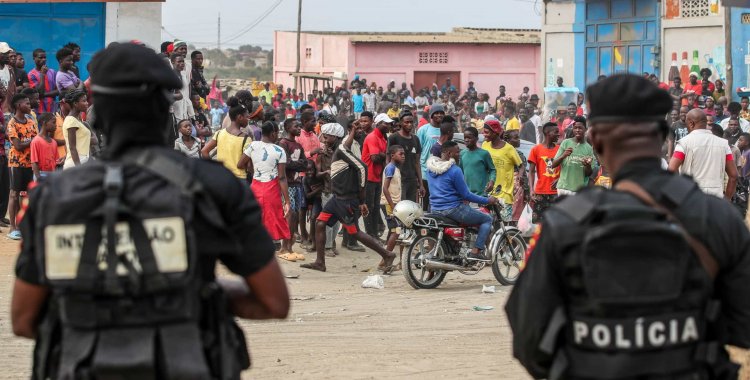João Lourenço spoke in an interview about exercising citizenship and freedom of expression in Angola, stressing that they are not limited, "on the contrary".
And "there are even excesses", he declares, pointing to cases of vandalism and desecration of historical figures such as the statue of António Agostinho Neto, the first President of Angola.
Regarding the action of the police, who have often been accused of repressing demonstrations, which thus never materialize, he stresses that they "react when they have to react" and not to mistreat citizens.
"There have already been demonstrations that were peaceful and there was no need for the police to intervene. The police are always present and only intervene if there is a need to do so", he points out, comparing what happens in Angola with the "great democracies" in which "there are demonstrations with quite violent police charges".
"No one wants to treat their own citizens badly, those who demonstrate are Angolans, they are our citizens, they are our children, they are our brothers and the police are there precisely to protect them, unless they demonstrate that they have other intentions. and lead to the police having to act", insists João Lourenço.
And he recalls times when there were no protests, due to the discontent of various classes, from doctors and nurses, to teachers and court officials, which has been translated into successive strikes.
"What if it were the other way around, if the regime did not allow demonstrations? What would they say, if it was like in the past? Was it better as it was before, when nobody went on strike, nobody held demonstrations?" he questions.
Instead of criticism, João Lourenço ironically suggests that the Executive deserves an award: "I think we should be awarded, instead of being criticized (...) If we say that we defend democracy, we have to subject ourselves to everything what is good and bad about democracy. It doesn't scare me to talk about the existence of strikes, the existence of demonstrations, it's a right".
He claims, on the other hand, that he has tried to do the best possible in terms of governance, noting that "things are not done overnight".
"People think that everything should already be done, but there will always be a lack of housing, schools, hospitals... galloping" of Angola that constitutes a "pressure" on infrastructures and food.
In addition, the consequences of the civil war that lasted almost 30 years and ended with the death of UNITA leader Jonas Savimbi in 2002 "will still last for some time", points out Lourenço, challenging the younger people, who have no memory of the conflict, "to ask themselves about this question".
About 45 percent of the 33 million Angolans are young people aged between 0 and 14 years.
Angola's Long-Term Strategy until 2050 foresees an increase in average life expectancy from the current 62 years of age to close to 70 years, an increase from the current 33 million to about 70 million inhabitants and a reduction by one third of the rate unemployment, which is around 30 percent.







